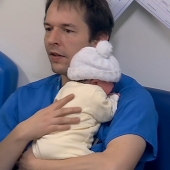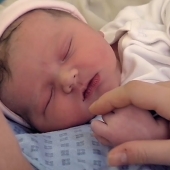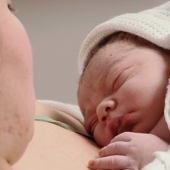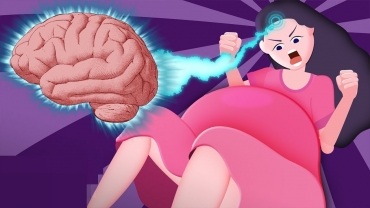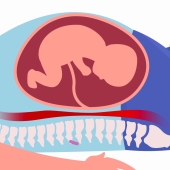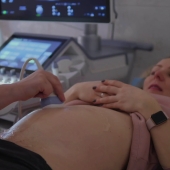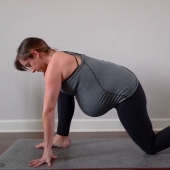My Core: First of all the most obvious changes that happen to a woman's body affect their core. When I'm talking about the core, I mean the abdominal wall, the pelvic floor, the lumbar and thoracic spine, and the diaphragm.
My Uterus: The reason your more changes so much during pregnancy is to make room for the uterus to grow. The uterus is located in the very very base of your pelvis and it's very small to begin with and as the baby grows theaters will expand upward and outward. It's going to push the intestines up out of the way and as that's happening your body has to move in response. So your pelvic girdle will widen apart your ribcage will flatten and one to make space for the growing baby.
My Spine: As the abdominal contents are widening in your ribcage is widening your spine is also going to make competitions as well. The lower spine will curve forward as the weight is shifted forward over the pubic bone. The upper spine will round backwards carving a swayback posture to balance the load in the front. The pelvic outlet will also become weighted and this will cause the muscle thins.
Sometimes this can cause loss of urine and loss of stool as that muscle easily came from the pressure above. All these changes to the center of gravity will cause you to have a wider base of support. So you go your feet will feel up there while you're apart and your balance will be a little bit disturbed. You may feel clumsy you may take more time to move around and as your body is spreading and widened from the ligament is shifting you may feel pain syndromes in your low back and in your pubic bone.
My Breathing : Another change that occurs during pregnancy is your breathing pattern. With a wider ribcage and a baby below breathing becomes much more difficult. Normally your diaphragm is tucked up under the ribs and it pulls down as you take a breath. With a wider ribcage it is harder to pull down and it may cause you to feel short of breath. During pregnancy you need more oxygen intake for you and a baby and more carbon dioxide output to get rid of any waste materials and breathing for two so you will find yourself taking longer breaths for more gas exchange and it's going to be much more difficult. Because the baby's in the way.
My Fluid: Your body is going to need more blood cells and more fluids to float the blood throughout your body. The more fluid load can strain your heart and your blood vessels. You may get swelling in your feet and in your abdomen as a result of the increased fluid pull it down. You may feel warm and flush often as your circulation to your skin tries to dissipate the heat. These fluid shifts are normal that you should expect but you can comment them easy with exercise.
My Hormones: Your body will experience hormonal changes as well by red levels will elevate to help boost your metabolism and then relaxin is going to be released to help loosen the ligaments around your pelvic girdle and your ribcage allowing your abdomen to grow.
My Digestion: Pregnancy also affects your digestive system. As the baby grows it's going to cause pressure on your colon. Your colon is also going to try to absorb more water to maintain the blood volume shifts in your circulation. Therefore you may experience constipation.
My Bladder: As well as digestive issues you're going to also have problems with your bladder. The bladder is located at the very bottom of your pelvic floor and gets moved out of the way during the growth of the baby. It moves upwards and is flattened forward causing it to be smaller. The pressure from above and the fitting and the public floor muscles below causing stress incontinence and 40% of women.
My Breasts: The breasts are going to increase in size up to two pounds to prepare for breastfeeding. This is going to add to the forward weight shift along with find the spine and can contribute to neck and back pain.
My Body: During your pregnancy your body does its very best to stay well and happy during all the physical and chemical changes that are simultaneously happening. Sometimes these systems can fail causing pain syndromes, fatigue, digestive problems, and continents. Often these issues resolved after the delivery but some can persevere into the postpartum period.
- 8831 views

